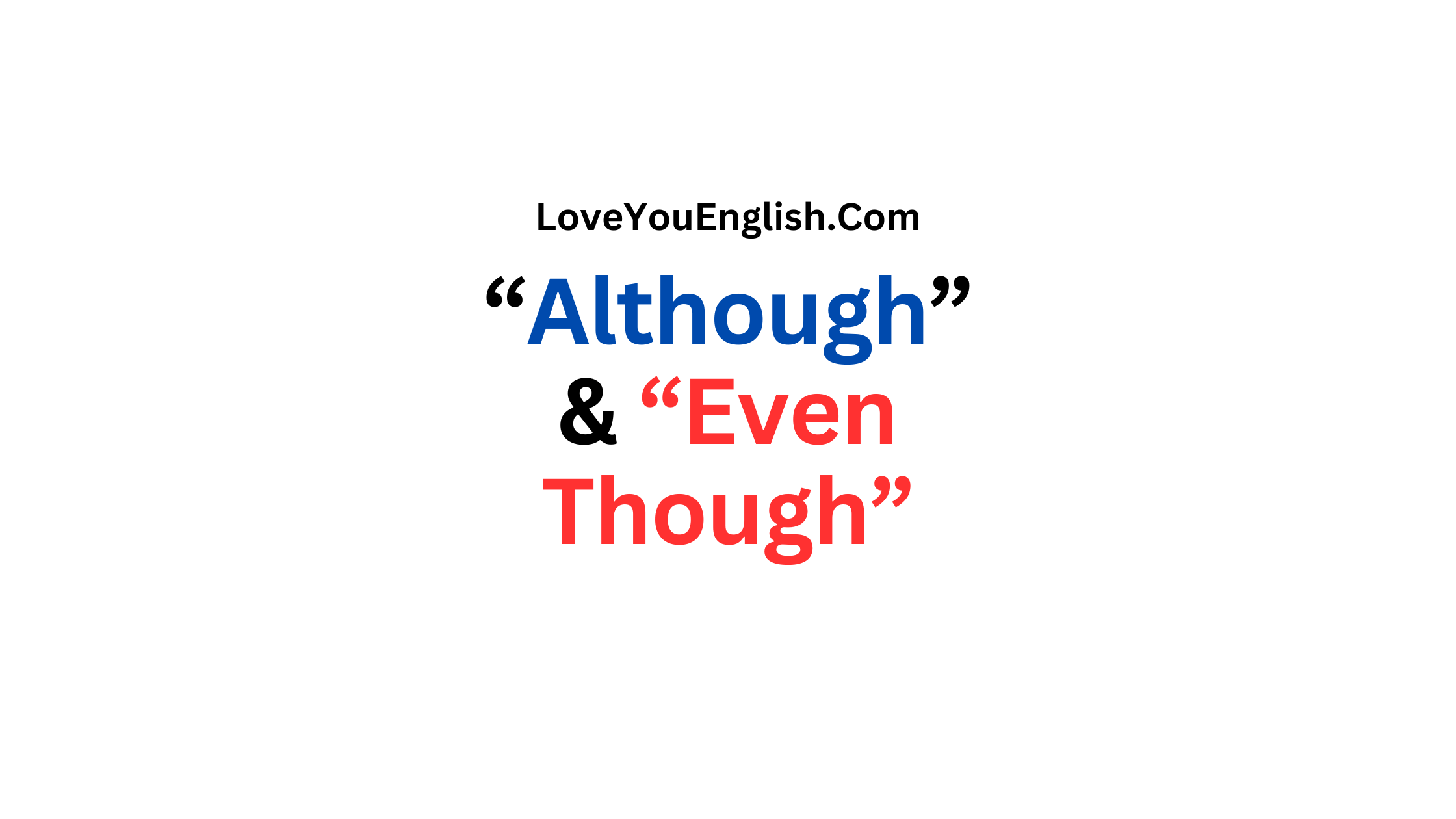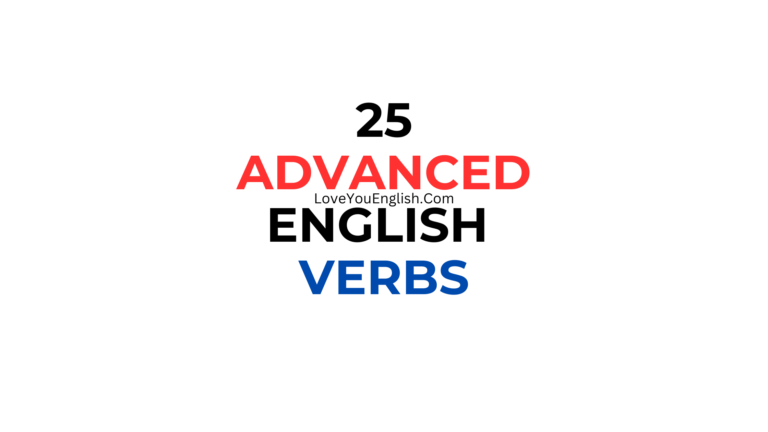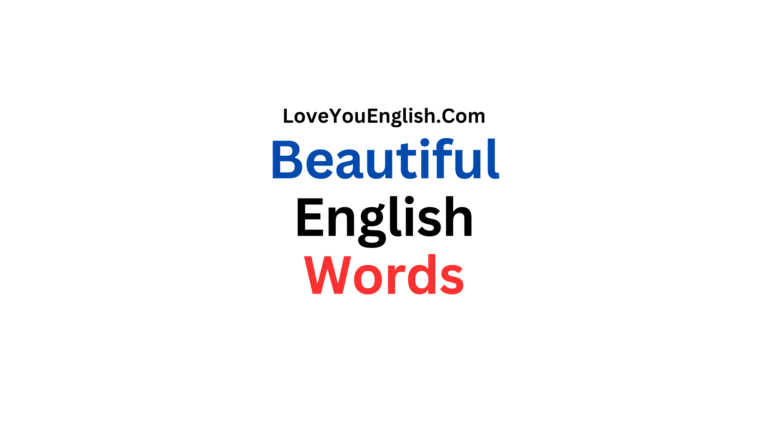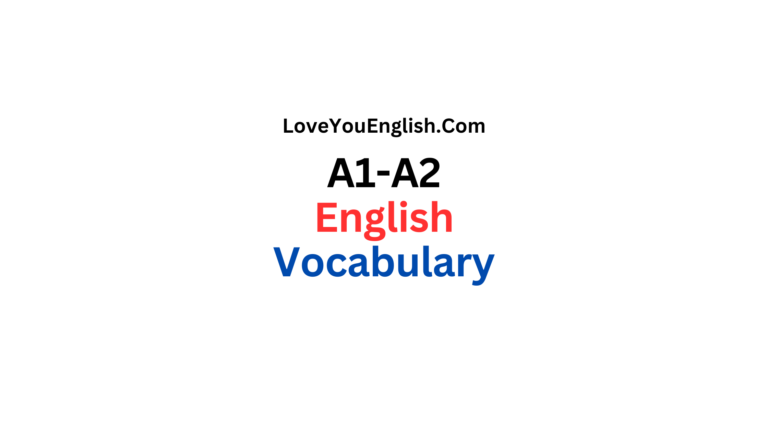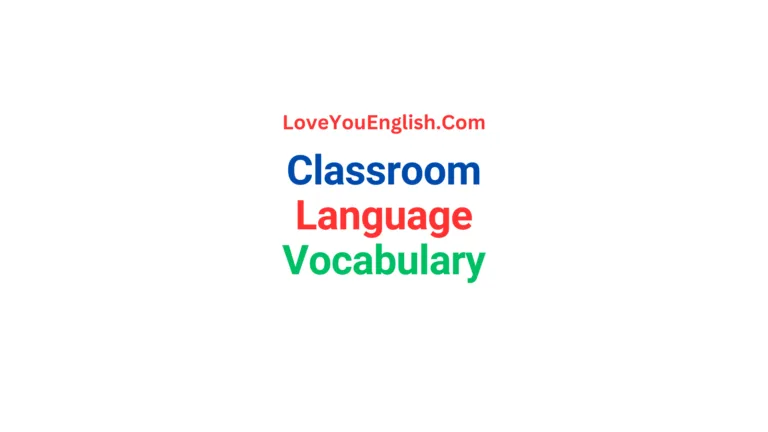Although vs Even Though – What’s the Difference?
Have you ever been confused about when to use “although” and when to use “even though”?
These little words might seem the same, but they have some small differences that can help your writing sound better.
Let’s explore these words together and learn how to use them correctly!
What Are “Although” and “Even Though”?
Both “although” and “even though” are words we use to show contrast.
This means they help us talk about two things that seem opposite or surprising when they happen together.
For example:
- Although it was raining, we still went to the park.
- Even though I was tired, I finished my homework.
In both sentences, we’re showing something unexpected happened.
You wouldn’t normally expect someone to go to the park in the rain or finish homework when they’re tired!
How Are They Similar?
“Although” and “even though” are very similar in many ways:
- They both connect contrasting ideas in a sentence
- They can both be used at the beginning or in the middle of a sentence
- They both help us show that something happened despite another thing
This is why many people use these words interchangeably – meaning they swap them without changing the meaning of their sentence.
The Main Difference
The biggest difference between “although” and “even though” is the strength or emphasis.
“Even though” is usually stronger and puts more emphasis on the contrast.
It’s like saying “despite this very important fact” or “regardless of this big obstacle.”
“Although” is a bit softer and more neutral. It simply introduces a contrasting fact without adding extra emphasis.
Examples to Help You Understand
Let’s look at some examples to see how these words work in sentences:
Using “Although”:
- Although the movie was long, I enjoyed watching it.
- I went for a walk although it was cold outside.
- She bought the toy although it was expensive.
Using “Even Though”:
- Even though the movie was extremely long, I still enjoyed every minute of it!
- I went for a walk even though it was freezing cold outside.
- She bought the toy even though it was very expensive.
Notice how the “even though” examples feel a bit stronger? They emphasize the contrast more.
When to Use “Although”
You might want to use “although” when:
- You’re making a simple contrast without strong feelings
- You’re writing something formal
- You want your sentence to sound smoother and less dramatic
“Although” works well in school writing and when you’re just stating facts.
When to Use “Even Though”
You might want to use “even though” when:
- You want to show something is really surprising or unexpected
- You’re emphasizing how difficult something was to overcome
- You’re telling a story and want to make it more interesting
- You’re speaking in an everyday conversation
“Even though” helps your writing sound more exciting and can show stronger feelings.
Placement in Sentences
Both “although” and “even though” can be placed at the beginning or in the middle of a sentence:
Beginning of a sentence:
- Although I studied hard, I still found the test difficult.
- Even though I studied hard, I still found the test difficult.
Middle of a sentence:
- I found the test difficult although I studied hard.
- I found the test difficult even though I studied hard.
Both ways are correct! The meaning stays the same no matter where you put these words.
Other Similar Words
There are other words that work like “although” and “even though”:
- Despite – Despite the rain, we had fun.
- In spite of – In spite of his injury, he finished the race.
- However – It was raining. However, we still had fun.
- Nevertheless – It was raining. Nevertheless, we enjoyed our day.
These words also show contrast but work a bit differently in sentences.
Fun Practice Exercises
Let’s practice using “although” and “even though” correctly:
- Fill in the blank: “________ it was my birthday, nobody remembered.” (You might choose “Even though” here because it shows stronger feeling about being forgotten)
- Fill in the blank: “I enjoyed the book ________ some parts were boring.” (“Although” works well here for a simple contrast)
- Try rewriting this sentence with the other word: “Although it was sunny, I brought my umbrella.” (Rewrite: “Even though it was sunny, I brought my umbrella.”)
Tips to Remember the Difference
Here’s a simple way to remember when to use each word:
- Use “although” for simple contrasts that aren’t surprising
- Use “even though” when something is really surprising or when you want to emphasize the contrast
Real-Life Examples
Here are some examples from everyday life:
- At school: Although recess is short, it’s my favorite part of the day.
- At home: Even though my brother is annoying sometimes, I still love him a lot.
- With friends: Although we live far apart, we talk every day.
- In sports: Even though our team was losing by ten points, we never gave up and won the game!
Common Mistakes to Avoid
Some common mistakes people make with these words include:
- Using them with “but” in the same sentence (Example: “Although it was raining, but we still went out.” – This is incorrect because “although” and “but” serve the same purpose)
- Forgetting to include a contrast (Example: “Although I like pizza.” – This is incomplete because there’s no contrasting idea)
Conclusion
Now you know the difference between “although” and “even though”!
Remember:
- Both words show contrast between two ideas
- “Although” is softer and more neutral
- “Even though” is stronger and adds more emphasis
- You can use either one at the beginning or in the middle of a sentence
- Choose the one that matches how strong you want your contrast to be
The next time you’re writing a story or doing a school assignment, try using both “although” and “even though” correctly. Your writing will sound better, and your teacher will be impressed with your understanding of these tricky words!
Practice using these words in your own sentences, and soon you’ll be using them perfectly without even thinking about it. Although learning grammar rules can sometimes be challenging, even though it takes practice, you can definitely master these useful words!

